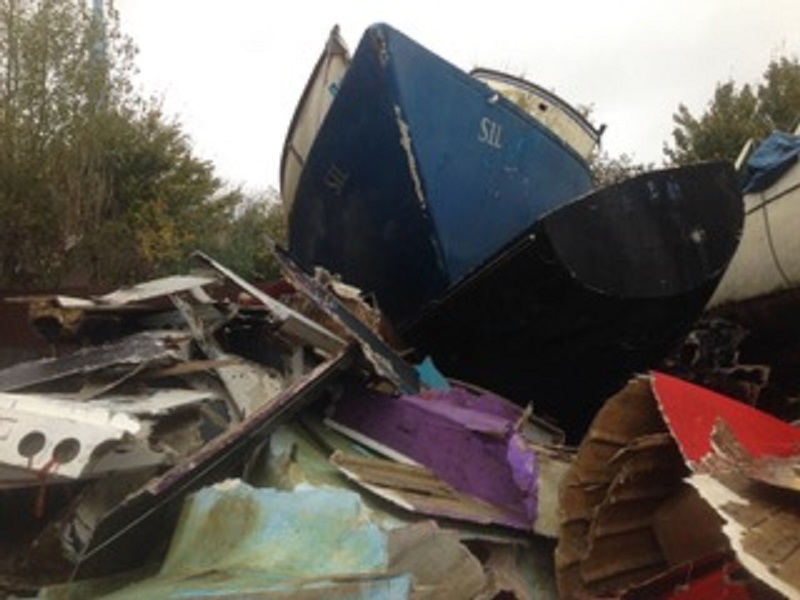
The Rhode Island Marine Trade’s Association (RIMTA) Foundation has launched the Rhode Island Fiberglass Vessel Recycling Project to look into the dismantling and re-processing of glass fiber hulls into cement as an alternative to landfill.
RIMTA says that between 2003 and 2012 it around two million recreational craft (an average of 210,000 per year) were retired in the US, according to surveys by the National Marine Manufacturers Association. While members of the European boating industry suggest that coastal nations in the EU retire between 6,000 and 9,000 recreational vessels annually. According to the association, some craft will be crushed and buried in landfills, while others may be abandoned by their owners on land or in coastal areas where they can potentially harm the natural ecosystem.
The project aims to:
- Pilot the dismantling and processing activities of 60-100 metric tons of glass fiber vessels in partnership with local boatyards
- Partner with local, state, and federal agencies to design the process to meet all health and safety requirements
- Conduct an economic analysis of the pilot program to determine long-term feasibility
- Investigate legislation and regulations necessary to support fiberglass hull recycling
- Document lessons learned and develop resources to aid in glass fider vessel recycling programs throughout the US and globally.
This story uses material from RIMTA,with editorial changes made by Materials Today. The views expressed in this article do not necessarily represent those of Elsevier.


